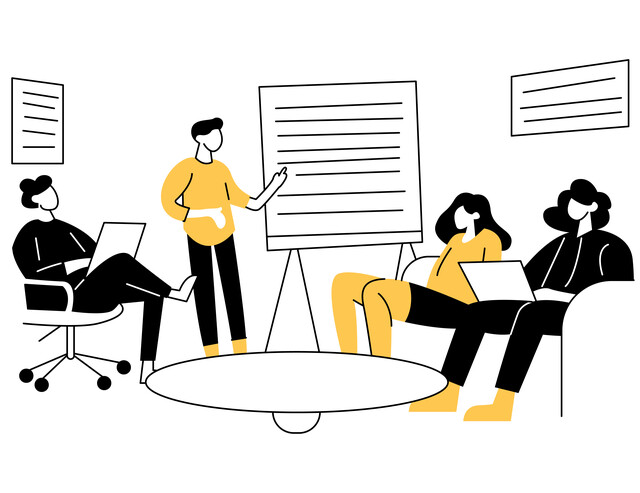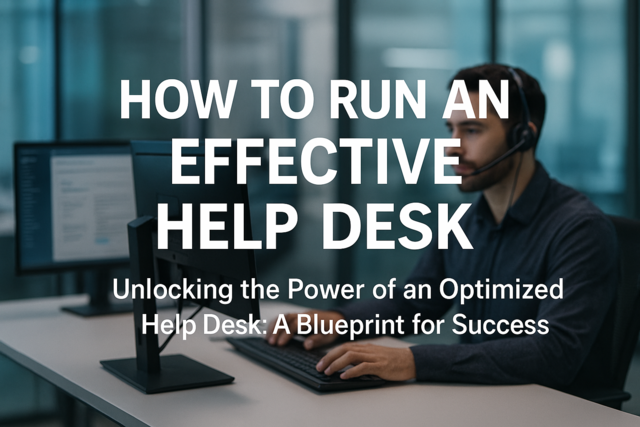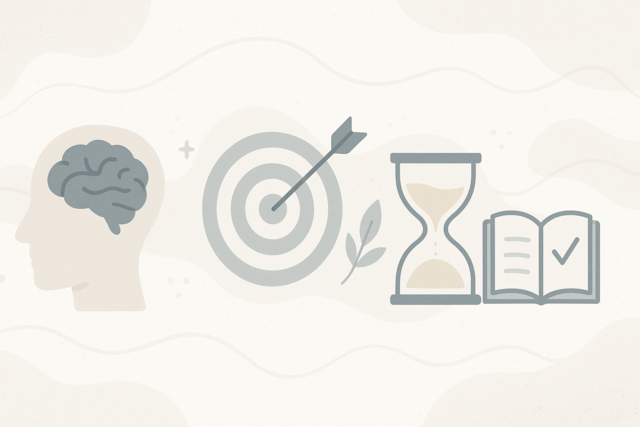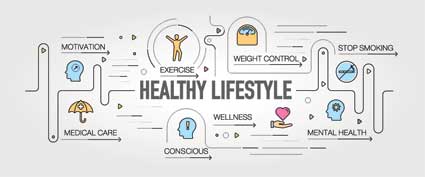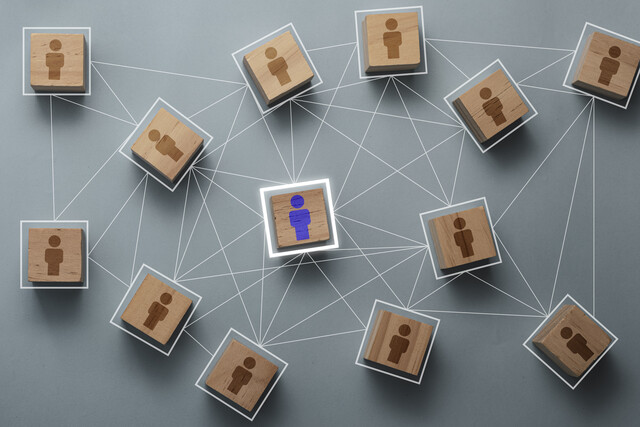We've all heard the old saying, "There's never a second chance to make a first impression." It's true. Are you sure you are projecting a good first impression? What is a first impression? If you're not sure, you may want to take a few notes and check yourself.
So, why is a first impression so important? Sometimes first impressions can be very important and other times they are not important to people at all. The times when they are not very important are when you are working in your yard and a new neighbor, out for a leisurely walk, passes by and says hello. You walk over, remove your gardening gloves and greet him with a handshake. You chat for a few minutes and both return to what you were doing. This is the casual first impression. By you working in your yard, one might think that you care about your home, and by the neighbor taking a walk, one might think he cares about his health. It was impromptu and you can't really prepare yourself for chance encounters of this nature.
Then again, you will come across people who don't particularly care what others think of them. They are full of confidence in themselves and tend to think, "If they like me, great. If they don't, it's okay." No one has to like everyone they meet. By just being himself, this person's self confidence just might shine through and make a good impression. Who's to know?
However, there are other situations where you might want to really plan ahead to make a good impression. You might be meeting your fiance and her parents for dinner. This is the first time you are meeting your future in-laws, so you want to make the best first impression you can.
Some experts say the first impression takes place within the first 30 seconds of contact. Once that first impression has been made, it's hard to change it. They have either received a positive or negative first impression of you.
Consider the following suggestions to help you make the best first impression you can:
Always make a conscious effort to make eye contact. Remember, looking down as you speak portrays dishonesty. The next time you are introduced to a group of people, play a game with yourself and try to remember each person's eye color. This will help you to remember to make eye contact. Sit or stand up straight. Make sure your shoulders are not slouching. Bad posture can make you look bored or tired.
As you would expect, a good, solid handshake plays a large part in making a favorable first impression. It should be firm and solid. Try to extend your hand first to show excitement. Keep your arm straight out and your elbow locked. Grab the other hand firmly, but not too hard, and shake in short, firm bursts. Look the other person directly in the eye as you are shaking their hand as a sign of respect, and then have a seat.
Keep your arms by your side if you are standing, or place them on the table if you are sitting. You can also place them folded on your lap. Don't cross your arms in front of you, as this is a sign of blocking others out and it makes you look closed. And, remember to smile. It's a happy time when meeting new people and soon-to-be family members, so make it a time to remember.
When someone asks you a question, make sure you are looking directly at them to show that you are paying attention. Don't interrupt, but wait until they have finished their statement or question. If there is activity or noise around you, try not to look away from the speaker to see what the commotion is. This is a sign of disrespect. You want them to feel assured that they have your full attention.
If you are trying to read someone's body language, it's a good idea to consider what kind of questions you should ask them. Then, carefully listen for the answers, especially in a nonverbal sense. Let's say you are on a first date and ask your date how many times per week they go out with other people. When observing the response, it is of interest to see if the person responds by shifting in their seat, looking away or starts scratching their nose. Asking questions that prompt people to show nonverbal cues will give you a wealth of information about them. You can use this to your advantage, depending upon the situation. Picture yourself as an employer who is conducting a job interview. You ask the candidate if they have ever been convicted on any drug charges or felonies. As you watch the response the person gives, you will be able to visibly see if they become uncomfortable with the question, and if they display cues that may indicate they are telling a lie.
Active listening is a very important skill in any type of situation. Not only does it help you pick up on the messages others are sending out, it takes into account your own body language during the event. Picture yourself in a board meeting for the third time in a month, covering virtually the same topic. While you may want to stare off at the wall and daydream about the hockey game you watched last night, you have think about the nonverbal cues you will be sending out. Those around you will see that you are bored and uninterested in what is being discussed, which can leave you with a bad image. Using active listening shows those around you that you care about what is being discussed, that you have something to add, and that even if it is boring material being covered, you are all ears. This puts you in a more positive light, because you are sending out positive nonverbal cues.
- Always be ready. Whether you are going into a job interview, on a date, or giving a presentation, the best way to show positive body language is to make sure you are prepared for the situation. Do your homework, so you know what to expect and are ready to handle whatever comes at you.
- Consider yourself. If you walk into an interview, keep your own body language at the forefront of your mind. You have no control over the body language of those around you, but they are paying attention to yours, and you can actively try to send out positive messages.
- Eye contact. Making good eye contact in any situation cannot be stressed enough. It is very important in showing you are an active listener, you are engaged in what the person is saying, and that you are certainly paying attention. If eyes lock, look away, but make sure you do make eye contact periodically to show good body language on your part.
- Gestures. To show you are an active listener, it is a good idea to nod your head occasionally as someone is speaking to you, to periodically ask questions about the topic, and smile.
- Sit still. You could be making eye contact and asking questions, but if you are jiggling your leg around, or tapping your pencil repeatedly, it is sending out a message you do not want others to read. Avoid doing things like playing with your hair, looking at the clock, and shifting a lot in your seat. All these things will send cues that you are bored or anxious.
Have you ever been in a situation where you are making a decision and you have a "gut" feeling that pushes you in one direction? Those gut feelings, that you often can't give an explanation for why you feel one way or the other, is your intuition. The power of intuition can be a great thing, yet it can also at times be misread. Many people believe that trusting your intuition, or the first response that your mind gives you, is usually the correct route to take. Yet there others that will argue the opposite and say that it makes no difference if you go with your first reaction or your third reaction. Psychologists believe that intuition is powerful, and that it can push people in the wrong direction.
According to the dictionary,intuition is quick and ready insight. The Greeks used intuition many years ago as information that came from the senses. It is part of the study of philosophy. Further, it's the power of having knowledge of something without evidence of rational thought. To a lot of people, intuition is seen as something of a sixth sense that people have. Many people find it to be a bit mystical in nature. There's no concrete reason for the feelings and notions that come from intuition. They can't be explained; it is merely like the mind's eye relaying information to you. While you might not know where the answers or knowledge have come from, you feel confident enough with the information.
Many experts believe that people sometimes place too much confidence in the ability of intuition, which can keep them from making effective decisions. The debate about the power of intuition is one that wages on. There are firm believers on one side of the issue who feel it should be followed and always taken into consideration. On the other side are those who believe it doesn't mean much at all, and should not be taken seriously. But there are a lot of psychologists over the years that have taken the power of intuition seriously and have studied, and continue to study, the phenomenon and its effects on people. Although it is an intangible method that lacks rationality, listening to what your gut instinct has to say can go a long way in helping you make the right choices.
Small children have a great intuitive ability. Possibly this is a defense mechanism that we are born with and the ultimate goal is to help keep us making good decisions, and ultimately to keep us safe. Young children will often shy away from certain adults and are drawn to others. Their sense of intuition tells them which ones they will feel comfortable trusting. Back in prehistoric times, intuition may have helped guide people as they learned what they could eat, who they could trust, and where they could safely travel.
Intuition is a form of unconscious thought that helps us make determinations about the realities around us. It even has an effect on how we deal with other people and the ethics that we live by. Under the right circumstances, intuition can be useful and help to lead us through the world.
Although intuition has a place in being able to read people, it is important to keep in mind that it can sometimes misfire. People often have stereotypes they believe, and as those thoughts about different races, genders, or other situations and people stay in our heads, they can lead us to feel as though it is intuition pushing us in one direction, when really it's our own biases. Sometimes it can be difficult to determine if your reaction is a gut instinct, or intuition, or, if you have come to the conclusion based on stereotypes that you believe about something.
During ancient times, people worked on developing intuition through Tarot, I Ching, and Astrology. Developing your intuition can help you in your career and other aspects of life. There are books and life coaches that focus on helping you specifically do this. The Institute of HeartMath offers tools to help people develop their intuition. They list some of the benefits of developing intuition as:
- Assisting you in being able to make decisions and communicate with others
- Enhancing your creativity and becoming a better listener
- Understanding yourself better and improving your relationships
- Improving your overall health
Reading body language is related to your intuition. This is because, as you study how someone acts, or the cues they are displaying, your intuition may lead you to thoughts about what they are non-verbally saying. For example, you could be in a job interview and see the person conducting the interview rest his chin on his hand with his elbow on the desk. Your gut reaction may send you a message that what he or she is doing is something different than it actually is.


